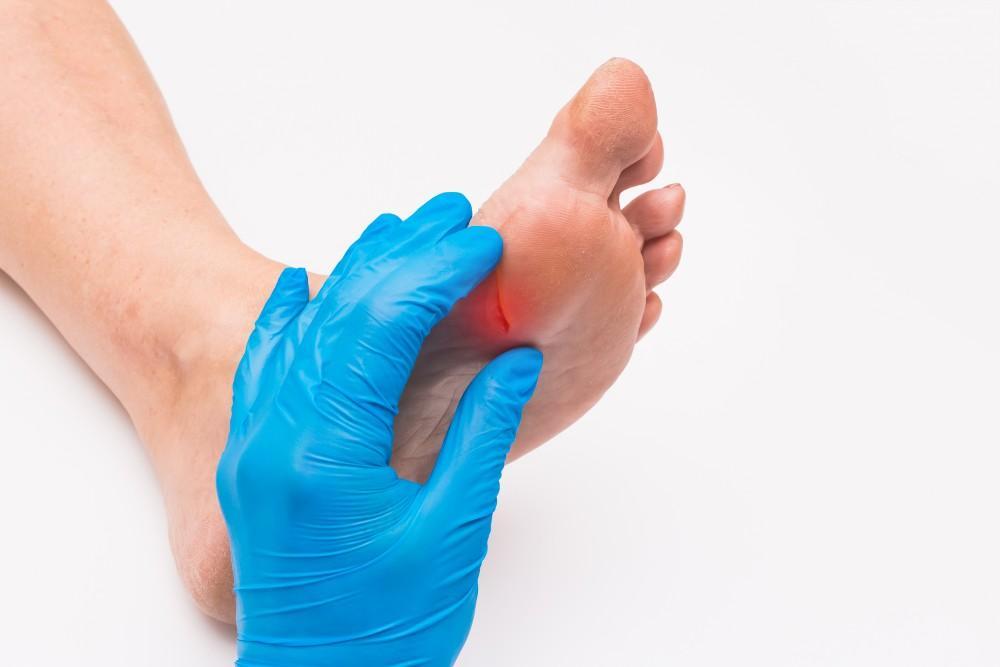Diabetes can cause many serious side effects for millions of people diagnosed with the disease, including interfering with your body’s healing system. Here’s how diabetes could increase your risk of serious infections and how we can help.
More than 11% of Americans suffer from diabetes, a chronic disease that affects the way your body uses blood sugar (glucose).
Every cell in your body depends on the right balance of glucose for optimal functioning. That’s why, when you have diabetes, you can wind up with a wide array of complications, including problems with wound healing.
Slow-to-heal wounds increase the likelihood you’ll develop a serious infection. In fact, diabetic foot ulcers are a leading cause of lower limb amputations.
In San Antonio, Texas, Manjulatha Badam, MD, CWSP, UHM, and our team at Vayu Advanced Wound Clinic and Hyperbarics are skilled in advanced wound care treatments designed for people with slow-to-heal wounds, including patients with diabetic foot ulcers.
Here’s what she wants her patients with diabetes to know about how their disease affects their ability to heal.
Diabetes and healing
Healing involves a complex physiological process, and diabetes affects that process in several different ways.
Poor circulation
Circulation plays a key role in healing. Blood delivers oxygen and nutrients necessary for repairing damaged tissues and carries away waste products and toxins that can interfere with healing and tissue regeneration.
Elevated glucose impairs blood vessel function, damaging the walls of your blood vessels and making it harder for blood to circulate. As a result, all of the healing benefits provided by circulation are limited, meaning it takes longer for wounds to heal and increases the risk of dangerous infections.
Impaired nerve function
High glucose levels can also damage your nerve endings, making it hard to feel when you have a wound. Even if you know you have a wound — say, a blister or a small cut — you might not feel the pain associated with a developing infection, so you may delay care while that infection gets worse.
Lower immune response
Diabetes affects pretty much every part of your body, including your immune system. Research shows that if you have diabetes, your body just isn’t as good as fighting off infections.
Specifically, the immune response is less effective at recruiting special cells needed to fight off germs and help your body repair itself after an injury.
Skin changes
Diabetes can also cause changes in your skin, making it more prone to injury or infection.
For instance, changes in the tiny blood vessels in your skin combined with a lower immune response can increase your risk of bacterial infections or fungal infections, which in turn can lead to skin sores and ulcers.
Caring for hard-to-heal wounds
Because of the healing challenges associated with diabetes, people with the disease need prompt, professional care for slow-to-heal wounds. At Vayu Advanced Wound Clinic and Hyperbarics, we offer several options for diabetic wound care.
Surgical wound debridement
Wound debridement uses surgical techniques to remove dead tissue, along with infected tissue and other debris. Debridement is often the first step in a complete wound-healing plan, allowing your body to focus its energy on repairing damaged tissue while also helping to prevent the infection from spreading.
Hyperbaric oxygen therapy
Hyperbaric oxygen therapy uses a special chamber filled with pure oxygen. As the oxygen is absorbed into your tissues, it circulates through your bloodstream, providing your body with the extra resources it needs for faster, more complete healing.
Negative pressure wound therapy
With negative pressure wound therapy, we use gentle vacuum suction to remove built-up fluids from your wound, allowing it to drain while decreasing inflammation that can interfere with healing. To do this, we seal your wound with a special bandage attached to a lightweight pump.
If your wound is on your foot, we might also recommend total contact casting, a special treatment that relieves pressure on the wound, while applying gentle compression around it to promote faster healing.
Small wounds can pose big dangers
When you have diabetes, even something as seemingly insignificant as an ingrown toenail, blister, corn, or tiny cut can have significant consequences for your health. If you have a wound that’s not healing properly or if there’s any sign of infection, don’t delay seeking medical care.
To learn how we can help, call our San Antonio, Texas, clinic at 210-651-1112 or request an appointment online today.

